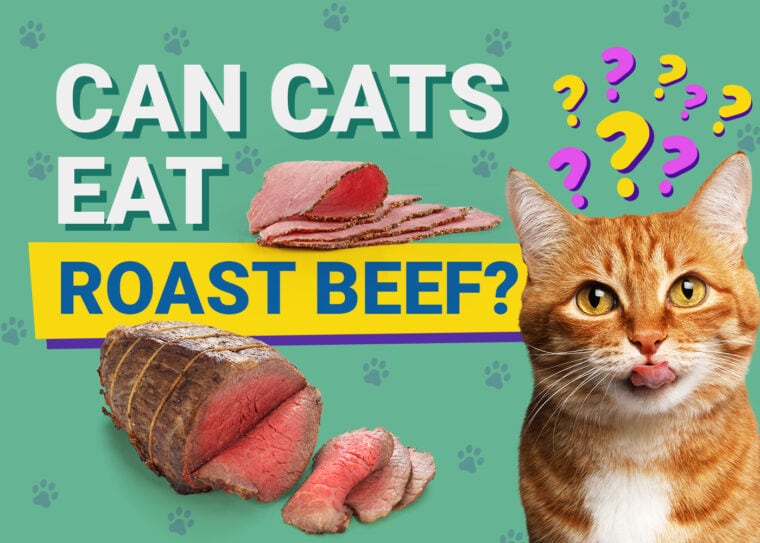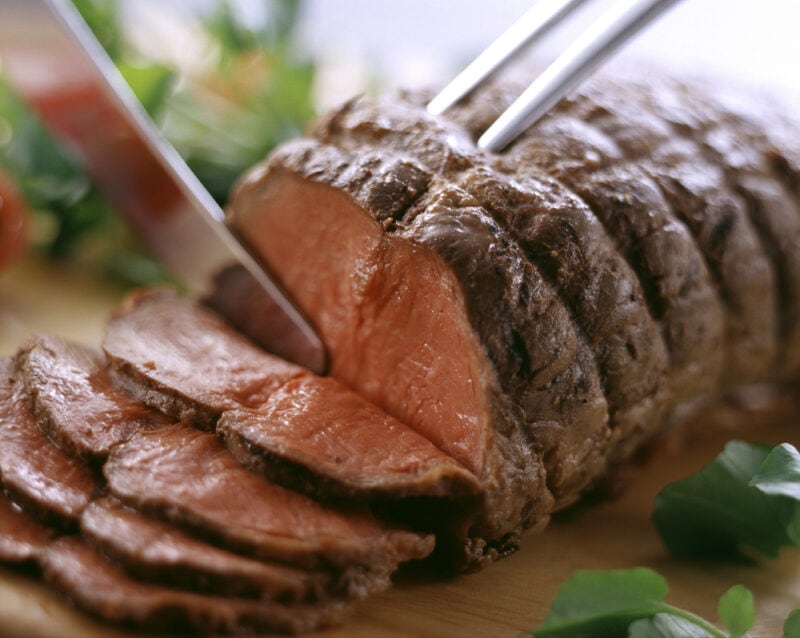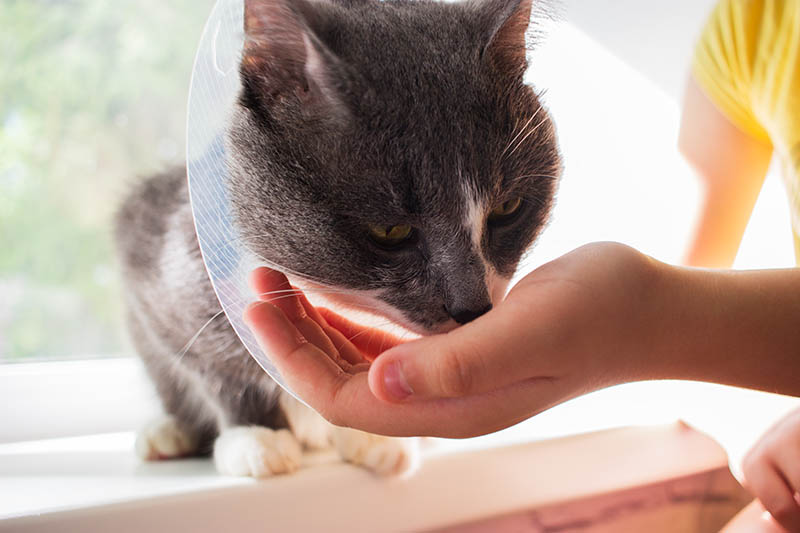
Cats are obligate carnivores, so they require a large amount of animal protein in their diets and few carbohydrates or other forms of nutrition.1 In the wild, cats can thrive on a diet of small animal prey. They hunt mice and rats, birds, and even lizards and snakes to manage their nutritional needs each day.
For a domestic cat, the owner is responsible for their nutritional needs. Offering high-quality commercial cat food is ideal for making sure your feline family member gets all the nutrition that they need. However, it’s tempting to spoil our kitties with treats like roast beef.
Is roast beef okay to feed cats? The answer is that cats can eat roast beef. However, that doesn’t mean that all roast beef is good for your cat, it depends on how it is prepared. Unseasoned roast beef can be a great protein source, but a few considerations should be made before offering any roast beef to your pet cat. This comprehensive guide should help you navigate your cat’s feeding regimen with more ease.
How Feeding Roast Beef to Your Kitty Can Be Beneficial
Roast beef isn’t inherently bad for cats. It contains protein and vitamins and minerals that a cat needs for good health. Unseasoned roast beef can be an excellent protein option for your cat, as it offers the following nutrients per 3-ounce serving (give or take):
The protein amount in roast beef is significant. However, the vitamin, mineral, and antioxidant offerings are little to none. While cats must eat animal protein as their main source of calories, they should intake other foods to cover the other vitamins, minerals, and antioxidants that they need for happiness and high overall quality of life.
You can offer small pieces as snacks, treats during obedience training, or even as enticing toppings during mealtimes to help your finicky eater finish their food.

What’s Dangerous About Feeding Roast Beef to Your Cat
Something to keep in mind is that roast beef is usually prepared for humans, which can pose a problem for cats depending on the preparation. For example, prepared roast beef is often full of sodium due to the added salt and seasonings, which can cause problems for your cat.
If salt or any other ingredients are used during the cooking process, take note of them before determining whether to share any with your feline. Onions and garlic are toxic to cats, so if the roast beef has been cooked in a stew or crockpot with these ingredients, it’s best not to offer any to your companion.
Steps to Take Before Feeding Any Roast Beef to Your Cat
Any roast beef that you consider feeding your kitty should be free of seasonings and any ingredients that you are unsure of.
Also, make sure that it’s cooked. Raw beef can harbor germs and disease and then pass it on to your kitty when they eat it. For example, raw meat can cause problems like toxoplasmosis, Listeria monocytogenes, salmonella, E coli, and campylobacter. Always make sure any roast beef that your cat gets is fully cooked.
Another important thing to consider is the fat and bones. These things should be cut away from any roast beef that you consider giving your cat. The fat can contribute to weight gain, and the bones can be choking hazards. Cut your cat’s roast beef into little chunks, and offer only one at a time. If serving lunch meat, just a quarter serving is sufficient due to its typical high sodium content and inclusion of preservatives that are not present in fresh meat.

What to Do If Your Cat Snatches Roast Beef From Your Counter or Plate
There isn’t much that you can do to stop your cat once they get their paws on a piece of roast beef that is sitting on your counter or plate. If your cat gets a hold of raw beef, though, take as much of it away as possible. Then, watch for signs such as lethargy, diarrhea, and vomiting. If your cat shows any signs of illness, contact your veterinarian. They will let you know what to do depending on your cat’s specific health statistics and side effects. The same advice is appropriate if your kitty snags a piece of seasoned roast beef.
Knowing exactly what your feline companion can and cannot eat will help you become the best pet parent. Recognizing that not all cat bowls are equal is also key! The Hepper NomNom Cat Bowl sets itself apart from traditional options by catering to the specific needs of cats. The innovative design offers whisker relief via shallow dishes and promotes digestion with a slight bowl elevation. Find out if the Hepper NomNom is right for your cat by clicking here.
At Pet Keen, we’ve admired Hepper for many years and decided to take a controlling ownership interest so that we could benefit from the outstanding designs of this cool cat company!
A Quick Recap
Cats love to eat meat—after all, it is in their DNA to do so. Roast beef can be a healthy occasional addition to your cat’s diet if it is prepared and served properly. No added fats, oils, or seasonings are necessary (or recommended). There are not many tastier treat options to consider offering your kitty! Just keep in mind that roast beef should be offered as an occasional treat instead of a regular meal option.
See also:
- Can Cats Eat Cabbage (Raw, Cooked, Red, & More)? Vet Reviewed Facts
- Can Dogs Eat Roast Beef? Vet-Approved Facts & FAQs
Featured Image Credit: vitals, Shutterstock








